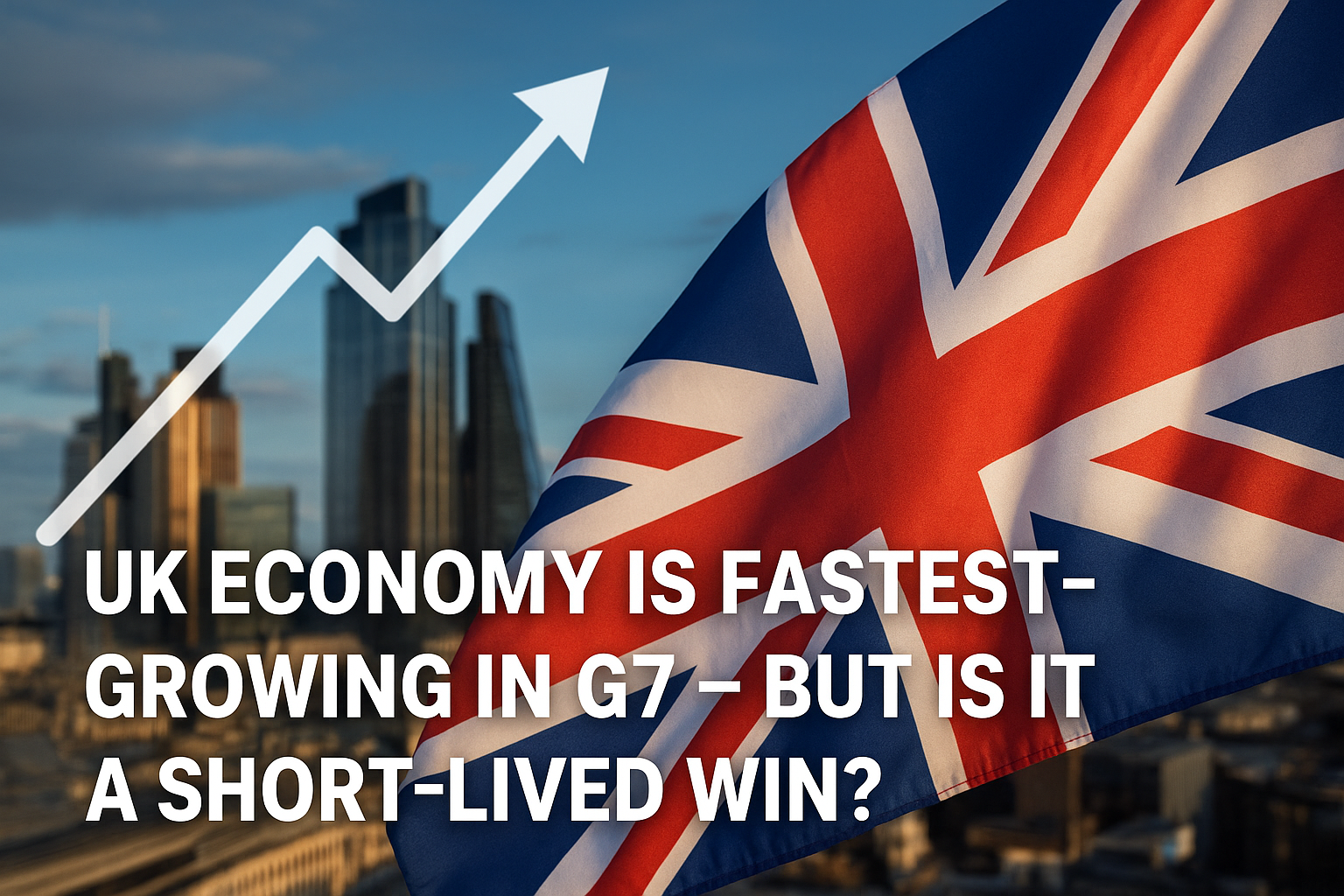At the start of 2025, the UK economy has surprised many by becoming the fastest-growing among the G7 countries, with a growth of 0.7% in the first quarter. This figure outpaced expert forecasts of 0.6%, offering a brief sense of optimism after several years of sluggish performance. But behind the headline, important questions remain: how sustainable is this momentum, and what might slow it down?
📈 Better Than Expected — But for How Long?
The unexpected boost in GDP (Gross Domestic Product) suggests British consumers spent more than predicted, particularly on services like retail, hospitality, and financial sectors, according to the Office for National Statistics (ONS).
March 2025 alone saw a 0.2% monthly increase, despite analysts forecasting no growth at all. This implies consumer and business confidence held steady — or even strengthened — despite uncertainty looming from global trade tensions.
🌍 Outpacing the G7 — A Global Context
Despite the modest appearance of a 0.7% rise, it’s significantly higher than growth in the US, Canada, Germany, France, Italy, and Japan — the other G7 members. These economies have all been hit by Donald Trump’s sweeping trade tariffs, introduced as part of his “Liberation Day” campaign, which began on April 2.
The UK’s performance is notable because it occurred before those tariffs took effect. Many UK businesses front-loaded exports to the US, anticipating the new barriers to trade. This “rush” in production and sales likely inflated Q1 numbers — a temporary boost, not a long-term trend.
🇺🇸 Tariffs May Cast a Shadow Over Coming Months
The US is the UK’s largest trading partner outside the EU. Any change in access to the American market has direct consequences for British exporters. Now that tariffs are live, UK exports to the US could fall, and growth may slow in the next quarters.
Although London and Washington have recently struck a partial deal to cut some tariffs, details remain unclear, and no timeline has been confirmed. Without clear rules, many businesses remain cautious.
💸 Are People Actually Feeling Richer? Not Really
Despite positive growth figures, most UK households might not feel any richer. In April, a wave of price hikes and tax increases took effect:
- Energy and water bills rose
- Phone and broadband costs increased
- Council tax, car tax, and the TV licence fee all went up
Additionally, some companies report that the combination of higher National Insurance costs and an increase in the minimum wage has made it harder to hire or retain staff. These pressures might dilute the economic gains felt on paper.
🧠 Our Take: A Good Sign — But Not a Turning Point (Yet)
While the latest data offers reasons for cautious optimism, it’s important to view the UK’s growth as an isolated bright spot in a cloudy global picture. Much of the Q1 boost was front-loaded activity, and with American tariffs now active, the next quarters may be more telling.
Inflation pressures, higher taxes, and energy costs continue to strain household budgets. Unless wage growth outpaces the rising cost of living — and unless exports hold steady despite new barriers — this economic “win” might be short-lived.
📚 Sources:
- Original article: BBC News – UK economy is fastest-growing in G7
- ONS Quarterly GDP figures: Office for National Statistics
- Capital Economics commentary via BBC
- UK-US trade policy announcements (April 2025)

